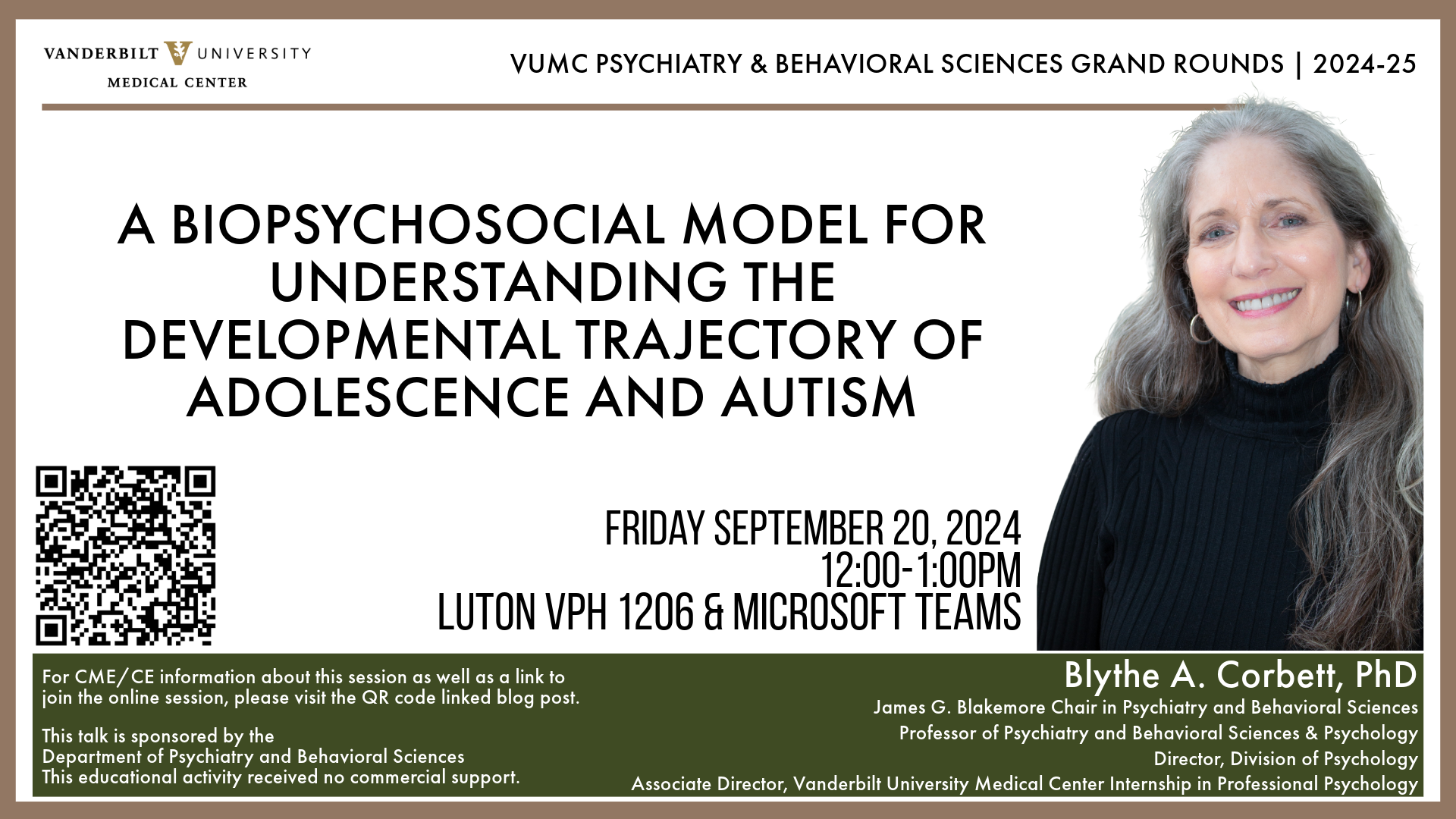
"A Biopsychosocial Model for Understanding the Developmental Trajectory of Adolescence and Autism"
Blythe A. Corbett, PhD
James G. Blakemore Chair in Psychiatry and Behavioral Sciences
Professor of Psychiatry and Behavioral Sciences & Psychology
Director, Division of Psychology
Associate Director, Vanderbilt University Medical Center Internship in Professional Psychology
Director, SENSE Lab
Investigator, Vanderbilt Kennedy Center
Autism spectrum disorder is characterized by social challenges and difficulty with transitions. Adolescence - a time of remarkable physical, psychosocial and physiological changes – is a pivotal and precarious transition for autistic youth. A comprehensive, multilevel, longitudinal study is offering insights to elucidate, educate and support this vital developmental period.
Blythe A. Corbett, Ph.D. is the James G. Blakemore Chair and Professor in the Department of Psychiatry and Behavioral Sciences at Vanderbilt University Medical Center. She is the Director of the Social Emotional NeuroScience Endocrinology (SENSE) lab, a translational research program focused on better understanding and treating social competence and stress in children, adolescents and adults with autism spectrum disorder (ASD) across development. In recent years, Dr. Corbett’s research has led to important findings related to the timing and trajectory of puberty, adolescence and mental health. Through generous support from the National Institutes of Health (NIMH) and the Eunice Kennedy Shriver National Institute of Child Health and Human Development (NICHD), Dr. Corbett’s research aims to better understand, support and track development, especially in autistic females. To date, Dr. Corbett’s program of research has led to over 95 original peer-reviewed articles in leading academic journals
Objectives
The activity is designed to help the learner
- Discuss characteristics of autism spectrum disorder and risk factors for developmental transitions
- Explain advanced puberty and consequences for physiological, psychological and social development especially in autistic girls
- Describe key elements of the biopsychosocial model for the study of autism

Sponsored by the Department of Psychiatry and Behavioral Sciences. This educational activity received no commercial support.